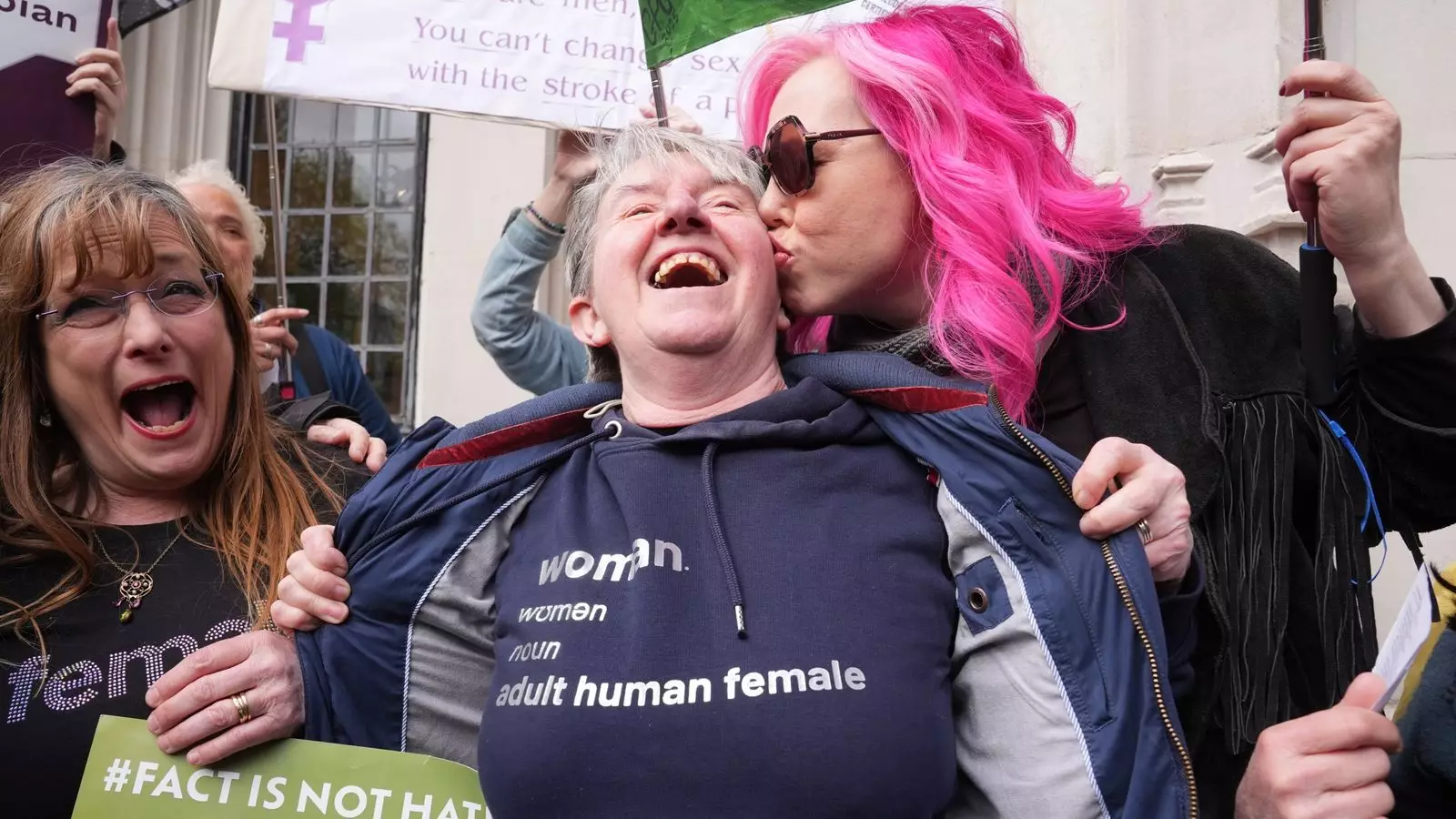In recent years, the discourse surrounding gender identity has reached a fever pitch, characterized more by emotional turmoil than rational discourse. The latest ruling from the highest civil court in England has illuminated the fissures dividing society, exposing a legal landscape that appears rigid, archaic, and profoundly detrimental to equality. For many, this ruling acts not as a beacon of clarity, but as a significant setback in the arduous fight for recognition and rights. The decision, which hinges on the stark biological delineation between male and female, threatens to silence those who dare to identify beyond traditional interpretations of gender.
The Legal Lenses of Gender and Discrimination
At the heart of this legal battle lies a tussle between two foundational legal frameworks: the Equality Act 2010 and the Gender Recognition Act 2004. While proponents of transgender rights once viewed the Gender Recognition Certificate as a legitimate pathway to acknowledgment within society, the court’s ruling has thrown that perception into disarray. It states unequivocally that holders of such certificates do not legally qualify as women. This assertion reaffirms an outdated binary categorization of gender that overlooks the complexities of human identity and expression.
Women’s rights advocates argue that the ruling secures boundaries aimed at protecting women in single-sex spaces. However, they fail to confront the reality that such delineations can marginalize and dehumanize transgender women. These spaces, often viewed as protective sanctuaries, become battlegrounds in a conflict that is, at its core, about the right to exist authentically. The simultaneous affirmation of anti-discrimination protections for trans individuals further complicates the discourse, as it appears to promise protection while simultaneously relegating their identities to a form of legal ambiguity.
The Collective Effects on Transgender Individuals
The emotional toll of this ruling cannot be overstated. Reactions from within the transgender community have been visceral; expressions of anger and disappointment echo the sentiment that their identities are being invalidated. “Gutted” is how one trans woman articulated her feelings regarding the decision, equating it to an outright attack on her very existence and rights. Such reactions are not mere footnotes; they symbolize the psychological and social impact of systemic marginalization. Legal clarity obtained at the expense of human dignity is not progress—it is regression.
The landscape of gender politics has transformed, with considerable implications for not just individual rights but also the broader cultural understanding of gender. The chorus of celebration from groups like For Women Scotland following the ruling raises serious ethical questions about whose rights are being prioritized, and calls into question whether we are witnessing a genuine defense of women’s rights or merely a resurrection of a bygone era’s biases.
Political Ramifications and Future Considerations
Politically, this ruling signifies turbulent waters ahead for various parties. The reactions from political leaders have been telling, with Sir Keir Starmer reassuring the public of confidence in single-sex spaces. His administration’s stance could signal a cautious pivot toward traditional views of gender, particularly with looming elections that might bring a backlash against progressive stances on gender recognition. Meanwhile, the Scottish government seems caught in an ideological quagmire, grappling with the ramifications of a past administration’s efforts to modernize gender laws.
The muted responses from figures like John Swinney suggest a reluctance to engage deeply with issues that have previously sparked intense debate. Yet, ignoring the complex realities of gender identity does not eradicate the need for society to address it comprehensively. With debates around gender effectively becoming political footballs, the future of meaningful reform seems increasingly complex, and the tremors of this recent ruling will likely echo in political corners for years to come.
In essence, the ruling crystallizes a widening chasm in societal understanding of gender, and it leaves in its wake real lives affected by an increasingly polarized environment. The challenge going forward will not only be navigating the legal ramifications but also fostering a societal culture that embraces all identities without relegating any to the sidelines.



Leave a Reply